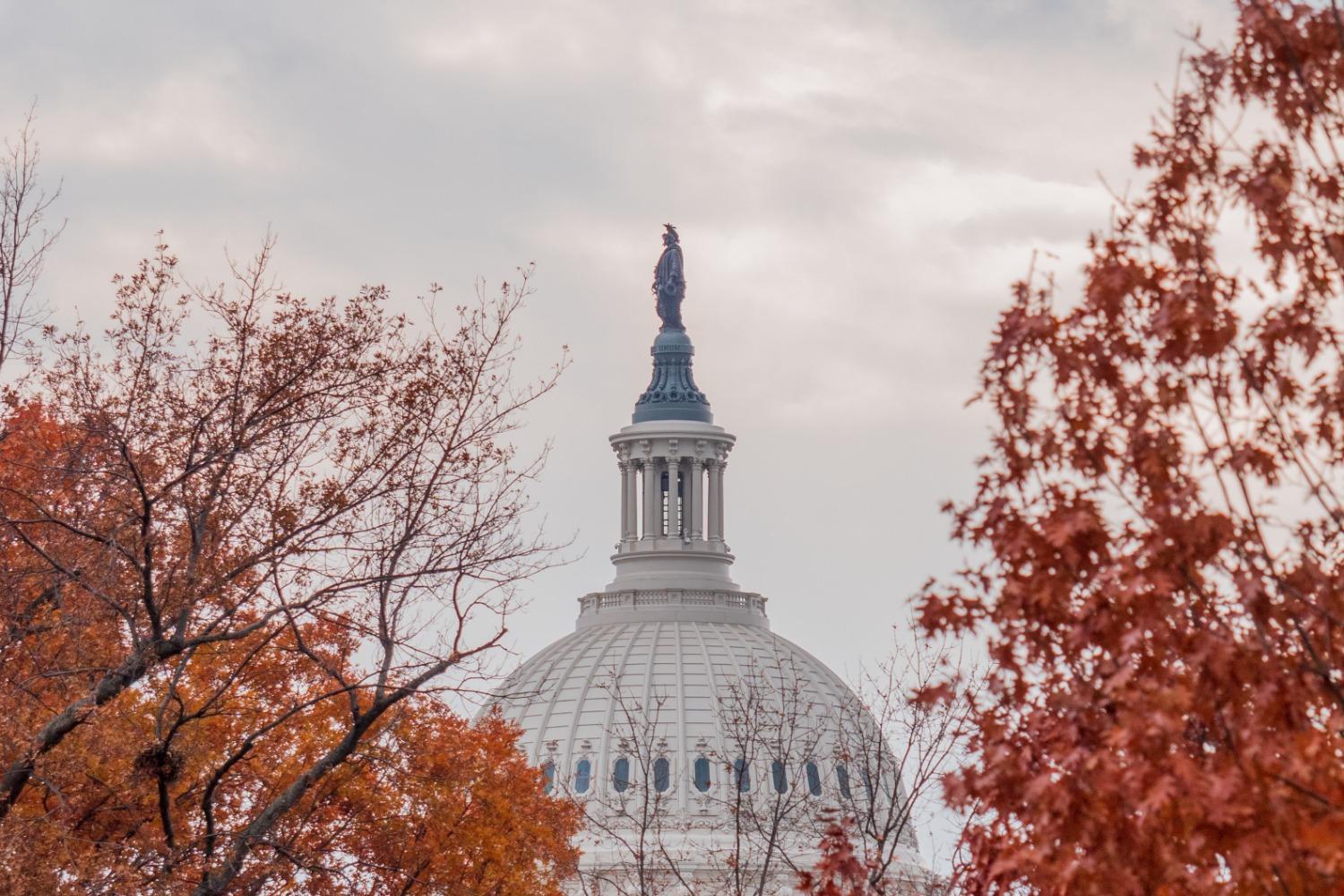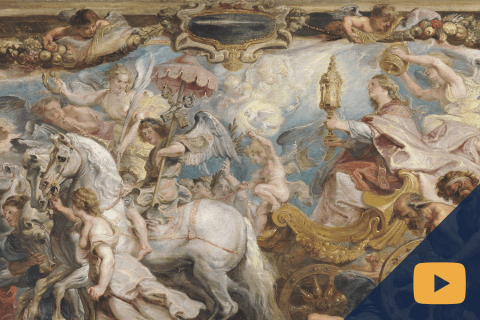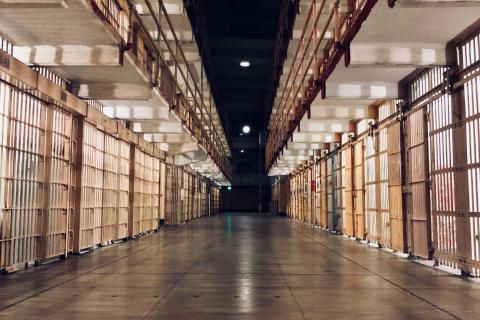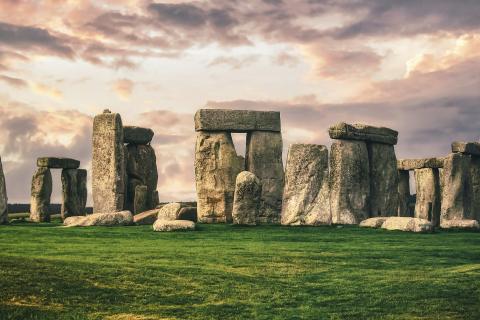
“If the separation of church and state is precious as a rule of our actions, it becomes ruinous if we make it the rule of our thought. Politics and religion are never entirely separate or separable. One cannot understand either, therefore, unless one takes them together” (Pierre Manent, Democracy Without Nations?).1
In Overdoing Democracy, Robert Talisse diagnoses the malady of democracy as an intrinsic tendency toward the “polarization” of beliefs and the progressive “sorting” of our social, commercial, and physical spaces into opposing political camps.2 He writes that “what is involved in overdoing democracy is the tendency to conceptualize the entire social world as already claimed for projects that are irrevocably political; it is to regard the horizon of shared social endeavor as intrinsically saturated with politics.”3 The lamentable result of this situation is that “we lose the capacity to treat our fellow citizens as anything other than political actors, either allies or obstacles to our political aims.”4 In his book, Talisse implores us to return to what he considers non-political social goods. In this essay I will argue that, on the contrary, contemporary polarization is due to a loss of the political.
Although he holds democracy as possibly “the supreme social good,” Talisse recognizes the democratic tendency toward dysfunction as connected to permanent human traits.5 He also identifies the dangers of the powerful ideal of democracy, which is distinct from democracy as a system of government. The latter is described in the “textbook definition” of “rule by the people by means of votes and elected representatives, all constrained by a public constitution which recognizes individual rights.”6 The ideal of democracy, by contrast, “is the proposition that each person’s status as an equal is preserved in a system of government that affords to each citizen an equal say in deciding the political rules by which all citizens will live.”7 This ideal gets its ideological force and claim to authoritativeness from its status as an alleged solution to the moral problem of conceiving a system wherein the government “is entitled to exercise the coercive power necessary to enforce its rules.”8 In short, “Democracy is the proposition that political rule can be made consistent with the fundamental equality of all persons.”9
The salient point in Overdoing Democracy is that, given the inherent trajectory of democracy toward polarization and dysfunction, the solution to the ills of democracy cannot come from more democracy. Indeed, says Talisse, “responding by doing more democracy straightforwardly exacerbates the problem – our redoubled efforts to enact proper democracy are destined to backfire in the absence of initiatives of a fundamentally different kind.”10 Talisse finds here an “exasperating conundrum”: “If politics isn’t the solution to this problem with democracy,” he writes, “what else is there?”11
Now, it is possible to write off democracy as irredeemable: one answers Talisse’s question by responding that the democratic ideal is dangerous and illusory and should be abandoned. Certainly, renowned pre-modern authors held democracy as “deviant” and a mere pitstop on the road to tyranny. For his part, Talisse remains a believer. In his book he offers the “prescription” of a “civic friendship” involving self-motivated efforts to depolarize ourselves and “rehabilitate” our view of others.12 Yet he is not sanguine: “to be frank, I’m not certain that there is a solution to the problem of overdoing democracy.”13
In this essay I eschew any grandiose opining on the viability of democracy. Rather, we observe that Talisse’s account of democracy leaves critical questions undetermined. Consider that Socrates, on trial in democratic Athens, for, among other things, “introducing new gods into the city,” did not, as he certainly could have, make his “apology” by arguing the illegitimacy in a democracy of recognizing a particular religion as authoritative. On the contrary, he insisted upon his commitment to the gods of the city. Now, one might say that Athens was not sufficiently democratic. One could also distinguish, however, between liberal and “non-liberal” forms of democracy, with Athenian democracy falling under the latter category.14
To elaborate this distinction, let us accept the democratic ideal as affording “to each citizen an equal say in deciding the political rules by which all citizens will live.” We notice, however, that the deliberative purview of the “political rules” remains unclear. “Ideological liberalism,” as we may define it here to stress its thoroughgoing character, is the idea that all dimensions of human life – so long as individual “equality” is maintained – are subject to the judgment of the deliberative democratic process: religion, family, culture, morality, for example.15
We recognize, then, that Talisse’s question “If politics isn’t the solution to this problem with democracy, what else is there?” could receive a starkly different answer depending on whether “democracy” presupposes ideological liberalism. The prescription of civic friendship offered by Talisse in Overdoing Democracy assumes this indefinite deliberative scope. It is for this reason I believe it is ultimately feckless. But rather than elaborating on the reasons for the failure, let us underline the point that a limitation on the substance capable of being brought within the scope of democratic debate does not necessarily entail an exit from democracy.
What kind of “substance” might fall outside the purview of democracy? Consider the following passage in From Christendom to Apostolic Mission:
The ideological liberal might insist that such an “imaginative vision” is itself an ideology and should not be imposed. We respond that this vision is not “rational” in the strict sense as an ideology and therefore does not conflict. Thus, the objection seems to suffer from a kind of categorical confusion. The “pre-theoretical,” character of the imaginative vision is set forth by Eric Voegelin in the New Science of Politics:
It is tempting to terminate the essay here, having critiqued “ideological liberalism” and identified the foundational function of the imaginative vision. It would seem to remain only to persuade others to adopt this vision. I propose, however, that in stopping at the possession or non-possession of certain intellectual or even spiritual “content” (viz., what is comprehended in the phrase “imaginative vision”) we will have stopped short. Consider that one is likely to conceive an imaginative vision as possessed either personally, by the individual, or collectively, by the total assembly of individuals or “society.” I believe such an analysis remains, without further development, embroiled within liberalism’s nihilistic undertow. It does not reckon, in Aristotle’s formulation, with man as a political animal.
Let us turn to an interesting series of distinctions raised by Carl Schmitt in The Concept of the Political, wherein he discusses three ways in which “state” and “society” may be understood to relate. In the first scenario the “state” retains “a monopoly on politics” because it has “not recognized society as an antithetical force.”18 In the second scenario, “society” appears as “antithetical,” but the state continues to retain a monopoly on politics because it stands “above society as a stable and distinct force.”19 Thirdly, and what is of particular interest to us, is the scenario where the state and society have completely “penetrated” one another and become identified. Crucially, the result is that “in referring to the state it is no longer possible to assert for it a specifically political characteristic.”20
Now, properly speaking, there is no “identity” between state and society in the first scenario because the state v. society split has never occurred – individuals within the political community have not taken the step to understand themselves as somehow opposed to the political community itself (e.g., as manifested in a “state”). This separation, made explicit in the second scenario, collapses in the third. Schmitt writes: “Heretofore ostensibly neutral domains – religion, culture, education, the economy – then cease to be neutral in the sense that they do not pertain to state and politics.”21 Thus, there is at once the loss of the “specifically political” and the politicization of all aspects of life. Depoliticization and politicization go hand-in-hand. The danger, as Schmitt concludes ominously, is that “as a polemical concept against such neutralizations and depoliticizations of important domains appears the total state, which potentially embraces every domain.”22
In Overdoing Democracy, Talisse laments the political saturation and polarization of modern life. From the perspective of the imaginative vision, we may join his lamentation insofar as it is clear that such polarization is peculiarly adept at pulverizing any “fundamental … set of assumptions.” He looks for a solution to polarization in specifically non-political “social goods” that are allegedly “outside” of politics. Applying Schmitt’s insights, however, we can say that the drawing of all aspects of life within the democratic purview arises from the liberal identity of state and society in which: “what had been up to that point affairs of the state become thereby social matters, and, vice versa, what had been purely social matter become affairs of the state.”23 Thus, it is precisely the loss of the political in the proper sense that facilitates such dysfunction in the first place.
The notorious problem with Schmitt’s account of is that he locates “the political” purely in the mode of the “friend-and-enemy” dichotomy, a definition he admits is not “indicative of substantial content.”24 Here I can only suggest that a good place to begin looking for the “substantial content” of the political is a reading of Aristotle’s Politics conducted with an unflinching attunement to the profound ways in which the organic political structure supersedes and even contradicts what we mean today by “society.” This is a momentous task for those formed by ideological liberalism.
Certainly, aspects of Aristotle’s thought may be repugnant to modern liberal sensibilities, including the sensibilities of some who have been deeply informed by the Catholic imaginative vision. For example, those particularly keen on the universal dimensions of the “human person,” may have difficulty with Aristotle’s assertions of the “relativity” of virtue to one’s function within the political whole.25 Yet if the denial of the organic structure of human life based on natural human difference plays into the liberal obliteration of the political – which as we have seen is paradoxically the “politicization” of society at the expense of the imaginative vision – then the refusal to embrace such intelligibility would seem to indicate, effectively, a willingness to subordinate that vision to certain elements of modern ideology.
To conclude, if the political is somehow integral to establishing and preserving the Catholic imaginative vision, then a philosophical perspective that identifies and integrates this dimension is called for. Specifically, it is imperative to guard against being led by ideological liberalism into understanding the endeavor as simply a project of individual or social persuasion. For this approach would seem to remain complicit in the depoliticization – and hence the destructive “political” polarization – of contemporary society. Though the goal be ever so far away, it should be conceived with maximum clarity and understanding. If the earthly ideal is Christendom, we should distinguish such a project from mere Christian society. Although we put on the mind of the same Eternal Christ as the apostles, strictly speaking it would seem neither possible nor desirable adopt their viewpoint in every particular – as if we did not know the potential meaning of the Faith for civilization.
1 Pierre Manent, Democracy Without Nations? (Wilmington: ISI Books, 2007), 4.
2 Robert Talisse, Overdoing Democracy (New York: Oxford University Press, 2019).
3 Ibid., 23.
4 Ibid., 25.
5 Ibid., 12.
6 Ibid., 37.
7 Ibid., 51.
8 Ibid., 50.
9 Ibid., 51.
10 Ibid., 68.
11 Ibid., 125.
12 Ibid., 165.
13 Ibid., 126.
14 See, e.g., Thomas Pangle and Timothy Burns, The Key Texts of Political Philosophy (New York: Cambridge University Press, 2015), 13-32.
15 One could make the case that liberalism is intrinsically ideological. My terminology is not meant here to identify a specific “type” of liberalism.
16 Msgr. James P. Shea, From Christendom to Apostolic Mission: Pastoral Strategies for an Apostolic Age (Bismarck, University of Mary Press, 2020), 7.
17 Eric Voegelin, The New Science of Politics (Chicago: The University of Chicago Press, 1952), 27.
18 Carl Schmitt, The Concept of the Political (Chicago: The University of Chicago Press, 1996), 22.
19 Ibid., 22.
20 Ibid.
21 Ibid.
22 Ibid.
23 Ibid.
24 Ibid., 26.
25 “It is thus evident that there is a virtue of character that belongs to all these [roles or conditions of people in the polis] mentioned, and that the moderation of a woman and a man is not the same, nor their courage or justice.” Politics, 1260a20-22. More generally speaking: “those who say in a general way that virtue is a good condition of the soul or acting correctly or something of this sort deceive themselves.” Politics, 1260a25.


